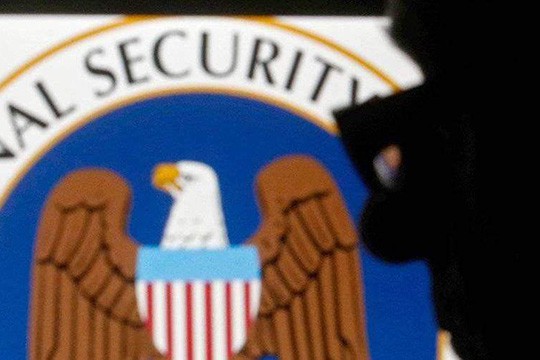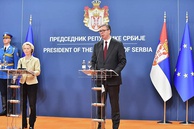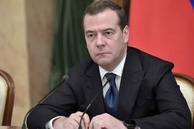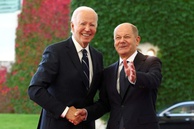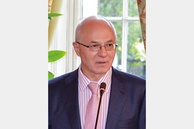On June 15, Czech President Petr Pavel announced that security measures towards Russians living in western countries should be harsher than in peacetime and that Russians should be “monitored” by Western special services. According to presidential press secretary Marketa Rehakova, the focus should be, first of all, on “those presenting risk factors”. In her words, the Czech president recalled the monitoring of Japanese citizens in the USA during the Second World War “in the context of the fact that restrictive measures against citizens from enemy countries are nothing new and were used in the past, even if in a more severe way”. As Rehakova maintains citing the president, given that Russia’s President Vladimir Putin and the military operation in Ukraine has gained widespread support among Russians, “it would constitute an “utter failure” by Czech security services not to “pay heightened attention” to Russians living in the Czech Republic”. [1]
This reminds us of the words once spoken by Victor Chernomyrdin: «…we’ve never ever seen anything like this, and here we go again!».
Talking seriously, Russian Deputy Foreign Minister Alexander Grushko pointed out that the statement by the Czech president about putting all Russian citizens under surveillance demonstrates the high degree of Russophobia which is currently observed in the United States and Western Europe.[2]
Given this, a question arises: Why is president of a secondary European country so concerned about spying on Russians? What kinds of secrets could they be discussing within their Russian community?
Frankly speaking, what the recently elected Czech president said could be attributed to his political immaturity, but, unfortunately, everything is much graver and at the same time simpler?
What we are witnessing is hysterical Russophobia as part of a hybrid war against Russia unleashed by the collective West. The fact that western special services are hunting for Russian citizens worldwide is known and confirmed by numerous cases. The Russian Foreign Ministry has repeatedly warned Russians about the danger of travelling abroad amid the de facto hunt for them by American and British special services.[3]
Russians risk “being tapped”, or, yet worse, being arrested for fabricated reasons not only in the USA and Britain, but in fact, all across the western world and beyond. According to sources in the Russian Foreign Ministry, American special services and law enforcers blatantly ignore the provisions of the bilateral 1999 Treaty on Mutual Legal Assistance in Criminal Matters using dirty methods for surveillance and arrest of Russians abroad. They employ such methods as the capture of Russian citizens, and their extradition to third countries with the assistance of other countries’ law enforcement agencies. There have been quite a few instances confirming this, including fabricated cases against the recently released businessman Viktor But and pilot Konstantin Yaroshenko, and against the programmer Roman Seleznyov, who is serving a 27-year term in the USA.
Since 2002, the bulk of work to spy on Russian citizens has been done by the National Security Agency, National Security Agency, NSA, which has a special department that collects personal data on Russian citizens. This super- secret NSA is humorously deciphered as No Such Agency.
To add more substance to all the above, I will cite Mich Li, a member of the Board of Directors of the American Foundation “Freedom Press”, who spoke about the prevailing trends in the NSA. In his words, American special services agents have been following orders to spy on Russians across the globe. Strange as it might seem, in addition to the NSA, the FBI, the CIA and the Pentagon, "the demand” for data on Russian citizens has been coming from the US Department of Agriculture, and first of all, from its affiliated agency Bureau of Alcohol, Tobacco, Firearms and Explosives, which has de facto turned in one more influential American special service.
Growing in number is not only the participating special services which collect information, but also their clients. Two years ago, electronic surveillance by NSA was used by about 300 agencies, including special services and power structures in the USA, Britain, Germany, France, and other countries of the collective West. Now, this number has increased to 1700 organizations, including those from the Czech Republic and Slovakia.
One of the most influential agencies that seek NSA services is the US Agency for International Development (USAID), which is sometimes described as “the cradle of color revolutions”. The USAID raised the present-day Bandera Ukraine, and it is the USAID that is reported to be supplying its NGOs in “Nezalezhnaya” with data on protest moods among Russian-speaking Ukrainians, who will then go to the premises of the Security Service of Ukraine for the so-called “cleansing”. What is interesting is that one of the clients seeking the agency’s services is the US diplomatic mission in the United Nations!?
Naturally, the “clients” seeking NSA surveillance services refer to “the war Russians are waging in Ukraine”, which justifies any expenses for obtaining information. Buried in the bottomless pit of information, the US electronic surveillance is currently being forced to switch from a systematic collection of information to the “personal” one, on the basis of requests from the organizations concerned. That’s why NSA employees complain that they are unable to “spy at will as before” but instead, have to eavesdrop on the Russians!”.
But what can an American or a Brit possibly understand from what a Russian says (in translation)? It is more than a challenge to render what Russians say in English. English writer Lewis Carol, as he travelled across Russia in the mid19th century, recorded a Russian ‘wonder’ word which means «thоsе whо рrоtесt thеmsеlvеs», but his traveler notes he transcribed this word in English - «zаshtshееshtshауоushtshееkhsуа». Every time he asked his friends to pronounce the word they went speechless. And how will they interpret the popular Russian response – «oh, yeah, yeah, no, of course»?! But all this is from the humor section.
The expansion of a range of hybrid operations in recent years has paved the way for reforming the NSA, which created conditions for making use of domestic policy squabbles inside the United States. Now that the 2024 presidential race has got underway, Republican Donald Trump has said that he has got “irrefutable evidence and plausible information” to the effect that Democrat Hillary Clinton, while serving as US Secretary of State, “was spying” for Russian President Vladimir Putin. In Trump’s opinion, Clinton allegedly used an unprotected computer to send secret files from her electronic mailbox and that the computer she used de facto became “an open book for the Russians”. This is in the past…
BUT the NSA does not stop short of spying on world leaders as well! Back in 2013, leaders of European countries expressed indignation over the activities of American special services, describing the “out of control” spying on citizens and governments as unacceptable after it became known that Washington security services had been eavesdropping on telephone conversations of western leaders. The names of heads of state whose telephones were tapped were not disclosed but supposedly, the list included German Chancellor Angela Merkel. The Guardian has published a 2006 office memo of the National Security Agency saying that an employee supplied the US Radio Intelligence Agency with a list of 200 telephone numbers, 35 of which belonging to world leaders, and that all the numbers were immediately put on wiretap. This was confirmed by NSA’s former employee Edward Snowden, who obtained political asylum in Russia. In the words of Snowden, the NSA has been eavesdropping on telephone conversations, and has been monitoring emails and social networks of nearly all world leaders for a long time. The memo handed over by Snowden and published by The Guardian, says US government employees were encouraged to search land and mobile phone numbers, faxes of “foreign political or military leaders”, and to pass all this information to the NSA. According to Snowden, the Agency has monitored more than 70 million telephone conversations, private talks and text messages in France in one month!
As for Russians, Chief Editor of Washington Free Beacon, Elian Johnson, says the CIA and then the NSA began to spy on Russian officials and public figures in the early 2000s, first they wiretapped federal government officials, then the list expanded to include a wide range of public sector employees and public figures in Russia.
In this respect, the key element of the hybrid war against Russia on the national and individual levels is the US National Security Agency, which has stretched its feelers in three basis directions: Firstly, the NSA has an indirect access to telephone conversations of hundreds of millions of clients across the globe, including Russians, of course. 135,000 NSA employees all over the world are carefully analyzing personal information of citizens, including phone numbers, duration of the call, the content of the talk, which makes it possible for them to detect suspicious behavior, such as the attempts to avoid the tapping. Secondly, the NSA has a direct access to the servers of dozens of Internet giants, including Google, Facebook, Microsoft, Skype, Yahoo!, Apple and Dropbox. NSA services have extended control over many things, from emails and chats to files that users store on cloud disks. Thirdly, the NSA has the same level of access to real-time information on transactions in systems such as VISA, MasterCard and others.
Thus, the activity of the National Security Agency (NSA) and strategic cyber command from the US Defense Department (USCYBERCOM) as part of “the hybrid-war military operations” of countries of the collective West against Russia has gone far beyond the bounds of the army agenda. It is an irrefutable fact that all operations in the so-called Gray Zone are under the control of leaders of these two structures, who created to this end a legal foundation and developed special programs for hybrid operations, such as International Narcotics Control, International Military Education and Training, Peacekeeping Operations, Antiterrorism Assistance. Having built a global info octopus, western special services expect to hear something secret from Russians in the USA, Britain, Germany, or the Czech Republic, whose president has come up with an initiative to eavesdrop on Russians “in the context of restrictive measures against citizens from enemy nations”. Russia is first on the list. A simple question that should be addressed to Czech President Petr Pavel – so, what and who else needs “monitoring”?
The opinion of the author may not coincide with the position of the Editorial
[1] Czech president’s office explains words about “monitoring” Russians in EU 16.06.2023. Electronic resource: https://www.rbc.ru/politics/16/06/2023/648cb6df9a79472edd84a6fa
[2] Russian Deputy Foreign Minister comments on Czech president’s words about Russians 19.06.2023. Electronic resource: https://tass.ru/politika/18060827
[3] We are all under CIA surveillance! 25.06.2021. Electronic resource: https://svpressa.ru/politic/article/302351/
read more in our Telegram-channel https://t.me/The_International_Affairs

 10:09 03.07.2023 •
10:09 03.07.2023 •
